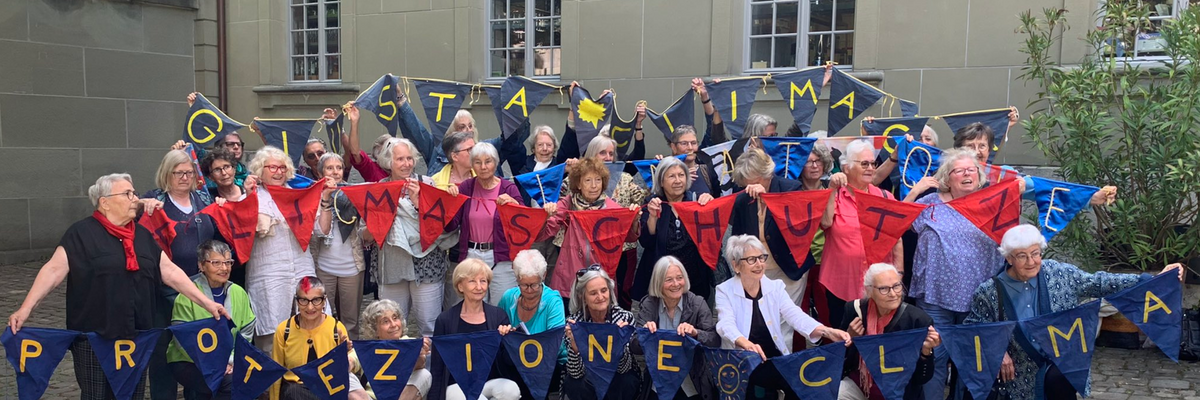With a number of international courts ruling in recent years that climate justice must be recognized as a human right, the United Nations Environment Program released a report Wednesday that found that climate litigation is emerging as a key driver of concrete action being taken by governments and corporations—forcing them to commit to emissions cuts and take accountability for harming the planet.
UNEP joined with the Sabin Center for Climate Change Law at Columbia University to compile the Global Climate Litigation Report: 2023 Status Review, and found that the number of climate crisis-related legal challenges filed across the world has more than doubled since the group's first analysis in 2017.
Nearly 900 climate cases were filed in 2017, while 2,180 were brought to courts in 2022.
"Climate policies are far behind what is needed to keep global temperatures below the 1.5°C threshold, with extreme weather events and searing heat already baking our planet," said Inger Andersen, executive director of UNEP. "People are increasingly turning to courts to combat the climate crisis, holding governments and the private sector accountable, and making litigation a key mechanism for securing climate action and promoting climate justice."
A majority of cases have been filed in the United States, with plaintiffs arguing government agencies and companies are failing to comply with clean air and water laws and other regulations, taking aim at companies they say have "greenwashed" their climate records, and demanding that children have the right to a safe environment, among other litigation.
But the report finds that lawsuits in the Global South represent a "growing percentage of global climate litigation," with more than 17% of lawsuits filed in developing countries including Small Island Developing States.
A majority of cases focused on residents' right to a healthy environment and demands for national climate policies that reflect that right have been filed in the Global South, according to the report.
The Brazilian Supreme Court found in 2022 that the Paris climate agreement should be treated as a human rights treaty with "supranational status," invalidating any Brazilian law that contradicts the agreement's demand that nations reduce their greenhouse gas emissions in order to limit planetary heating to 1.5°C over preindustrial levels.
In Mexico in 2020, the Supreme Court invalidated a rule that would have allowed a higher ethanol content in gasoline, "concluding that the right to a healthy environment and the precautionary principle required the evaluation of the potential of increased GHG emissions and an analysis of the country's commitments under the Paris Agreement," reads the report.
In addition to federal courts in individual nations, international human rights panels have handed down landmark rulings in recent years, forcing companies and governments to change course on the climate.
The United Nations Human Rights Committee last year found that Australia had failed to adequately protect Indigenous Torres Straight Islanders from climate impacts, recognizing that "climate change was currently impacting the claimants' daily lives and that, to the extent that their rights are being violated, Australia's poor climate record was a violation of their right to family life and right to culture."
Australian officials were ordered to adopt "significant climate adaptation measures" as a result of the historic ruling.
Plaintiffs in recently filed lawsuits may benefit from "an increasingly well-defined field of law" which has begun to provide an understanding of the human right to adequate climate policy, said UNEP and the Sabin Center.
As Common Dreams reported in March, a coalition of elderly women in Switzerland argued before the European Court of Human Rights that they are uniquely affected by insufficient climate action and by continued fossil fuel extraction, as older people are vulnerable to the extreme temperatures that the climate crisis is causing.
A number of similar cases have been brought by children who have argued—in Australia, the U.S., Argentina, Haiti, and elsewhere—that their rights have been violated by their government's continued backing of fossil fuel emissions, improper waste disposal, and support for coal expansion.
Ongoing climate litigation largely centers on:
- Cases underpinned by international human rights laws;
- Challenges to domestic non-enforcement of climate-related laws and policies;
- Efforts to keep fossil fuels in the ground;
- Demands for corporate climate disclosures and liability and an end to greenwashing; and
- Challenges to governments' failure to adapt to the impacts of climate change, including extreme heat and sea level rise.
Future cases are likely to also focus on climate migration, as more than 30 million people were displaced in 2020 due to weather and climate events; demands for legal remedies after an extreme weather event has destroyed homes or businesses; and plaintiffs' claims that their harms were in fact caused by the climate emergency.
"Since 2020, few courts have yet to reach the merits of these types of claims, despite the growing body of science illustrating the connections," reads the report. "The science of climate attribution continues to be central to climate litigation, and as more cases are filed and reach the merits of the plaintiffs' claims, as was anticipated in the 2020 Litigation Report, there will be increased judicial attention on the matter."
As companies and governments seek to deny responsibility for climate harms, litigation targeting climate protesters may also be part of a "backlash" against campaigners' lawsuits, said UNEP and the Sabin Center.
In some high-profile cases recently, protesters have emerged victorious when their actions have been the target of litigation.
As the Sabin Center noted, a New Zealand District Court ruled in 2020 that without direct action like that of protesters who trespassed on an oil platform, "change may be too late." The campaigners were convicted but discharged without penalty.
In 2021, activists who halted operations at Charles De Gaulle Airport in Paris were acquitted because a court found their actions "were taken in a 'state of necessity' to warn of future danger, namely climate change."
